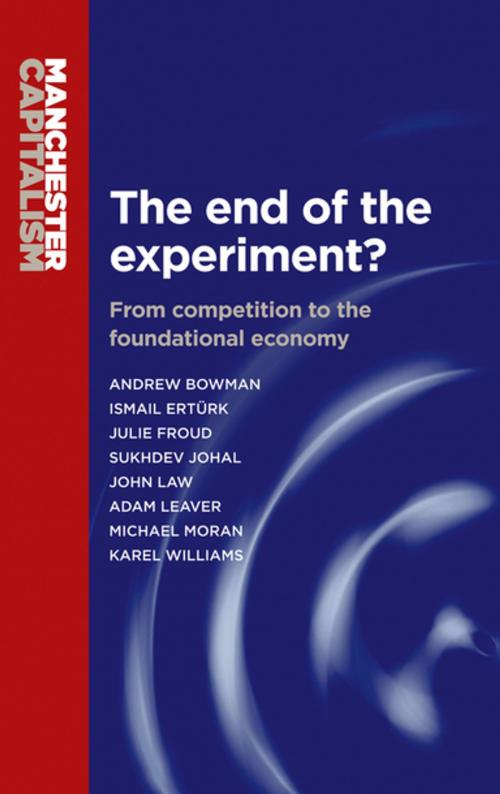The end of the experiment?
From competition to the foundational economy
Nonfiction, Social & Cultural Studies, Social Science, Sociology| Author: | ISBN: | 9781847798923 | |
| Publisher: | Manchester University Press | Publication: | July 1, 2014 |
| Imprint: | Manchester University Press | Language: | English |
| Author: | |
| ISBN: | 9781847798923 |
| Publisher: | Manchester University Press |
| Publication: | July 1, 2014 |
| Imprint: | Manchester University Press |
| Language: | English |
This book describes the failure of a 30 year old policy experiment with competition and markets and proposes a new experiment in social licensing of foundational activities. The repeated failure of that old experiment in subjecting the basics of everyday life to competition is conclusively demonstrated by detailed case studies of three sectors - broadband, food supply and retail banking - where private sector business models realise point value for corporations at the expense of underinvestment, damaged supply chains and gouged customers. The radical move is then to change the frame and envisage a new experiment. The three sectors are only part of a much larger foundational economy, producing mundane goods and services which form the basis of civilised life. In this sheltered zone, firms and sectors enjoy privileges which bring profit. The book argues for a new experiment in social licensing whereby the right to trade in foundational activities would be dependent on the discharge of social obligations in the form of sourcing, training and living wages. This argument for reframing economic policy choices comes from a team of researchers and policy advocates based at the Centre for Research on Socio Cultural Change who blog as Manchester Capitalism. Their book combines rigour and readability so that it is relevant to all those - practitioners, policy makers, academics and engaged citizens - who are looking for new possibilities of action which can start a process of learning about a better way of organising the fundamentals of economic life. It offers a way out of the current impasse.
This book describes the failure of a 30 year old policy experiment with competition and markets and proposes a new experiment in social licensing of foundational activities. The repeated failure of that old experiment in subjecting the basics of everyday life to competition is conclusively demonstrated by detailed case studies of three sectors - broadband, food supply and retail banking - where private sector business models realise point value for corporations at the expense of underinvestment, damaged supply chains and gouged customers. The radical move is then to change the frame and envisage a new experiment. The three sectors are only part of a much larger foundational economy, producing mundane goods and services which form the basis of civilised life. In this sheltered zone, firms and sectors enjoy privileges which bring profit. The book argues for a new experiment in social licensing whereby the right to trade in foundational activities would be dependent on the discharge of social obligations in the form of sourcing, training and living wages. This argument for reframing economic policy choices comes from a team of researchers and policy advocates based at the Centre for Research on Socio Cultural Change who blog as Manchester Capitalism. Their book combines rigour and readability so that it is relevant to all those - practitioners, policy makers, academics and engaged citizens - who are looking for new possibilities of action which can start a process of learning about a better way of organising the fundamentals of economic life. It offers a way out of the current impasse.















